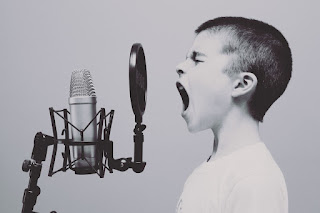On the Twitter, I tweeted this about Sharing T1D yesterday. I'm fine with others liking or not liking to share their diabetes information. Health, including diabetes, is a very personal subject and often subjected to stigmatising remarks, bullying and sometimes just generally unhelpful (and often unsolicited) advice. Little wonder that some prefer to not share anything in regards to their own diabetes with the prospect of such negativity. I really understand that, I hid my T1D for a long time because I didn't want to hear the advice or the patronising encouragement or have to explain what it was, what type, do I have to inject... yadda, yadda. It was just so much easier to hide it for the majority of the time and social media is such an easy place to hide. It's easy to have lurker accounts on pretty much every platform, easy to sit back and read rather than joining in the conversations. Hiding and not sharing is a very safe place to be.
There is a safety aspect to consider when sharing, too. Who knows who lurks behind the keyboards of others and what their intentions might be? Only last summer, I was made aware of a prolonged period of stalking and accusational tweets aimed towards me from an Australian advocate account which I'd blocked some 18 months beforehand. Disturbing stuff which took me away from Twitter for a few days to consider my options. Thankfully, that episode came to an end once I'd brought it to public attention but it was shocking and upsetting. It's very easy to upset somebody on social media without trying and those we upset well, they might not have enough sandwiches for a picnic. How do we share but stay safe? There is no simple answer apart from avoid offering personal details to people who you don't know. Sometimes, even that might not be enough if a determined person wants to track you down, find your employer, etc.
So, is it worth it? Yes! I think that offering your story, your experiences, your info can be really helpful to your peers. I imagine that you've read something in regards to diabetes which you've found useful in how you manage your own diabetes. Maybe those words came from somebody living with the same type of diabetes, a person who was willing to share their experiences and information. That's why you should consider sharing your experiences and information! It is the cheapest and easiest way to "pay it forward". Of course, don't make it easy for the sandwich deprived to locate you in person, avoid publicising your phone number and sort code and if an unpleasant encounter does occur then my best advice is to ignore it. You might choose to use the mute function on your chosen platform rather than the block button to minimise the oxygen given to the angry fires. To not give oxygen to the fire has been a long term piece of advice of mine but I'm still guilty of doing the opposite from time to time. I'm only human and the urge to vent can be overwhelming in the face of serious sandwich deprivation. I'll try harder in 2023.
What about the feelings of others when you share? Perhaps you've had a great HbA1c, your best ever, and you hit your socials to spread the news and celebrate your good day. I suspect you'll mostly be met with encouragement and good cheer from your friends and peers. However, you may also be met with words which dissuade you from sharing such info because others might be having a tough time with their A1c or general diabetes management. I have a lot of sympathy for anybody who is struggling with their diabetes, I try to make myself available to anybody who needs to talk through groups, mentoring or just a simple message exchange but the struggles of others should never stop you talking about your own diabetes if you've had a good day or a good result. This condition is relentless and despite the tech advances it will continue to be so for the foreseeable. Little victories need to be celebrated, I find them to be morale boosting, I feel more in control of my diabetes and, when others share their wins, I feel encouraged by them and pleased for my peers.
To not share results or information through fear of upsetting others is a backwards step in peer support. If we were to stop sharing our lived experiences, what worked, what didn't, what hurts, what itches, a great A1c, a dodgy TIR, etc then how do we learn about advances in tech and medicine and care and solutions? Our diabetes team? Yeah - I'm not sure that the closed looping crowd would agree. I wouldn't agree, either. Without reading the experiences of my peers, I wouldn't have discovered Flash, CGM and insulin pump therapy as soon as I did - three things that massively improved my diabetes burden and numbers.
If you do feel negatively about the shared information or experiences of others then I think it might be worthwhile to seek support from different areas, especially if such sharing is becoming overwhelming to you and making your own diabetes burden even worse.
I am pro-sharing when it comes to diabetes. It is the foundation of peer support, in my opinion and there are very few dangers from tweeting your last A1c result. Oversharing is where the dangers lie, keep your private info protected and remember that fire and oxygen thing.
